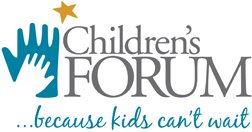Governance
The Coalition is mandated by Florida Statute to provide an integrated and seamless system of school readiness services with a developmentally appropriate education component for the state’s eligible birth-to-kindergarten population. This effort focuses on an enhanced, coordinated county-wide system of high quality affordable and accessible early education and childcare that optimizes children’s readiness to learn and succeed upon entering school.
Our 21-member board is comprised of mandated community representatives and appointed members from the private and public sector. Additionally, community representatives are encouraged to be a part of appropriate Coalition committees.
The Coalition’s mission statement emphasizes community through our efforts “to provide leadership and foster partnerships to optimize a quality early learning environment for our children.“
Sunshine Law
The ELC is a not-for-profit agency that adheres to the requirements of the “Sunshine” law as described in Section 119.01, Florida Statutes.
Q: What is the Sunshine Law?
A: Florida’s Government in the Sunshine law provides a right of access to governmental proceedings at both the state and local levels. It applies to any gathering of two or more members of the same board to discuss some matter which will foreseeably come before that board for action. There is also a constitutionally guaranteed right of access. Virtually all state and local collegial public bodies are covered by the open meetings requirements except the judiciary and the state Legislature which has its constitutional provision relating to access.
Q: What are the Requirements of the Sunshine Law?
A: The Sunshine law requires that:
1) Meetings of Boards or Commissions must be open to the public;
2) Reasonable notice of such meetings must be given; and
3) Minutes of the meeting must be taken.
Q: What Agencies are Covered Under the Sunshine Law?
A: The Government in the Sunshine Law applies to “any board or commission of any state agency or authority or of any agency or authority of any county, municipal corporation or political subdivision.” Thus, it applies to public collegial bodies within the state at both the local as well as state level. It applies equally to elected or appointed boards or commissions.
Q: What Qualifies as a Meeting?
A: The Sunshine law applies to all discussions or deliberations as well as the formal action taken by a board or commission. The law, in essence, applies to any gathering, whether formal or casual, of two or more members of the same board or commission to discuss some matter on which foreseeable action will be taken by the public board or commission. There is no requirement that a quorum is present for a meeting to be covered under the law.
Q: What is a Public Record?
A: The Florida Supreme Court has determined that public records are all materials made or received by an agency in connection with official business which is used to perpetuate, communicate or formalize knowledge. They are not limited to traditional written documents. Tapes, photographs, films and sound recordings are also considered public records subject to inspection unless a statutory exemption exists.
Q: How can I find out More About the Open Meetings and Public Records Law?
A: Probably the most comprehensive guide to understanding the requirements and exemptions to Florida’s open government laws is the Government-in-the-Sunshine manual compiled by the Attorney General’s Office. The manual is updated each year and is available for purchase through the First Amendment Foundation in Tallahassee. For information on obtaining a copy, contact the First Amendment Foundation at (850) 224-4555.
For a 2009 Electronic Edition of the A Reference For Compliance with Florida’s Public Records and Open Meetings Laws, Volume 31 please follow this link.
For more information on Sunshine Law, please visit the Government in the Sunshine Website: http://www.myflsunshine.com/sun.nsf/pages/Law







